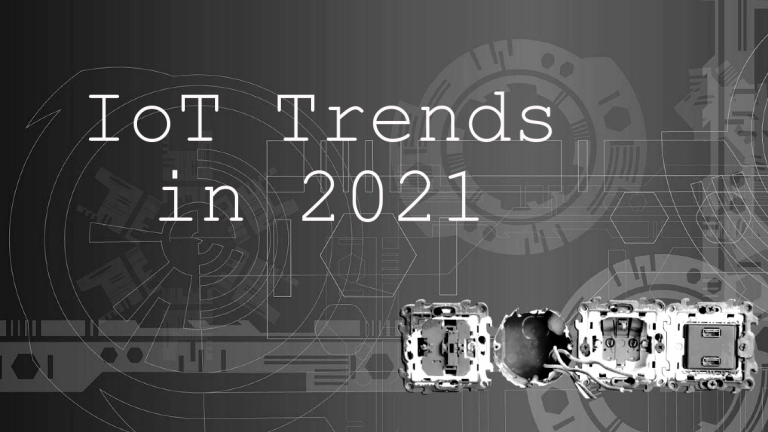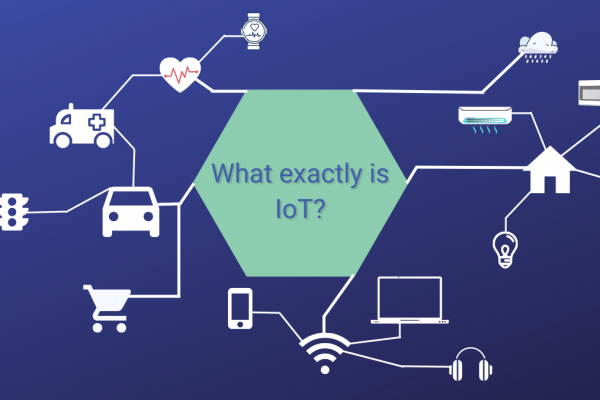2020 was a tough year for everyone, in every aspect of their lives. Most tech companies faced an unprecedented and unplanned shift to WFH, and while there were some hiccups in the beginning, WFH has pretty much become the norm. Even simple everyday activities like shopping for groceries or seeing a doctor for a cough became drastically different this year. The impact of 2021 will drive the IoT trends for 2021. The coronavirus created a huge disruption in the tech industry and is likely to drive the major tech trends of 2021
Smart workplaces
Since most employees will be working from home for the major part of 2021, smart workplace technologies are likely to take a leap next year. More companies are likely to invest in developing a smart work environment to work efficiently while remote working. We can expect a Zoom like growth for smart workplace technologies in 2021.
Companies are still considering the possibility of going fully remote, and many have already decided to go at least partially remote. In such a situation, companies will need tools for monitoring the productivity of their employees. Wearables or other applications of IoT can fill the demand here, but of course, this raises questions about the privacy of the employees.
Even if/when we’re going back to the office, companies are looking for technologies to ensure employees are following social distancing as well as proper handwashing norms. Organizations will rely on RFID or other IoT technologies to enforce them. Facial recognition technologies that work even with a mask is already under works.
IoT in retail
Cashier-less stores that were piloted by Amazon may become more familiar next year. More and more retail stores are likely to invest in IoT for their in-store shopping. This trend is driven by the pandemic and the need to ensure a safe shopping experience. A couple of stores recently made news as they deployed facial recognition to ensure all the visitors were wearing masks.
But the odds are that the implementation of IoT in retail won’t be limited to safe shopping. Many companies have been testing autonomous vehicles that deliver products to the doorstep. We can expect to see more testing of delivery by drones the next year.
IoT in retail is also likely to go so far as to the warehouses, with more and more automation expected in 2021.
IoT in healthcare
2020 was a huge year for healthcare in terms of the challenges. With the vaccines being rolled out in many countries already, it is safe to say that healthcare stepped up to the challenge. Artificial intelligence was deployed for everything from detecting to finding a cure for the virus. We can expect more involvement of IoT in healthcare in the next year.
The widespread use of 5G will be another driving force in the use of IoT in healthcare. Higher speeds and lower latency promised by 5G will allow the use of 5G in more mission-critical applications such as remote surgery or robotic surgery.
We can also expect wearables to become more popular. Oura ring which was able to reliably detect fevers using its temperature sensor became popular this year. And more and more people are using wearables, they have become more affordable as well as highly advanced. While these wearables come with useful sensors, the healthcare sector is yet to use them for diagnosis.
Internet of behaviour
Internet of behaviour is another interesting IoT tech trend for 2021. While IoT is about controlling and monitoring devices remotely, the internet of behaviour is about using this data to monitor and modify human behaviour. IoB gained attention as a potential method of encouraging employees to maintain social distancing.
IoB is one of the top technological trends for 2021 according to Gartner. It has the potential to revolutionize advertising and marketing like how targeted ads did.
Technologies like the internet of behaviour raise concerns about privacy and security. Moves to improve the privacy of users and the security of devices will be a trend the coming year.
Privacy and security of smart devices.
Over the last couple of years, we have witnessed an explosion in terms of usage of smart home devices. But even last year, their lack of security made the news. Many internet-connected devices were hacked into and faced unintentional leak of user data.
All over the globe, there is an increasing awareness about the privacy issues of smart devices. Companies are likely to put a lot of effort into convincing the public about their devices. Innovation without compromising privacy is likely to be the mantra next year.




